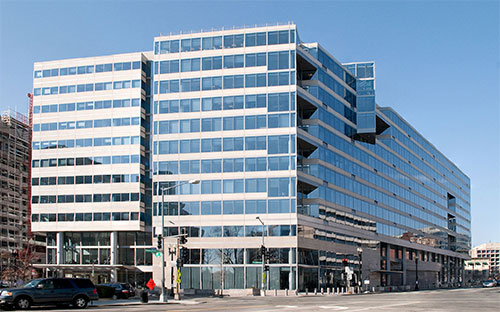
The Asia-Pacific Forum for International Arbitration (AFIA) has appointed new committee members for the 2017 term. The appointees were chosen from among arbitration practitioners in the Asia-Pacific region and globally. PDRC Trustee Donemark Calimon will the Philippines’ country representative to the AFIA.
Mr. Calimon is a partner and head of Quisumbing Torres’ Dispute Resolution Practice Group. His legal career focuses on domestic and international commercial arbitration. He has authored several books on arbitration and mediation. AFIA currently has over 500 members from 45 countries.
AFIA provides young arbitration practitioners with a forum to discuss issues and developments in international arbitration, with particular focus on Asia-Pacific. It also offers opportunities for its members to benefit from AFIA’s cooperation with similar organizations around the world. Since its inception, AFIA has held 45 symposia in the Asia-Pacific region. AFIA has lined up upcoming and future symposia for the 2016-2017 term, which are expected to be as fruitful as the previous ones.
The strange case of Christine Lagarde
Guilty.
This was the recent ruling of a French court, the Cour de Justice de la République, against Christine Lagarde, managing director of the International Monetary Fund (IMF), who was charged with the misuse of public funds while she was France’s finance minister almost a decade ago.
The Tapie case
In 1993, French businessman Bernard Tapie, who was offered to serve as a minister under then President Francois Mitterand, sold his majority stake in the well-known sports company Adidas to a group of investors, apparently upon the advice of the state-owned bank Credit Lyonnais.
Lyonnais got Mr. Tapie a deal for $300 million. The buyer in turn sold Adidas for roughly $700 million. It later turned out that the buyer was an offshore entity in which Lyonnais was a quiet partner.
Mr. Tapie accused Lyonnais of fraud and of undervaluing Adidas. He argued that Lyonnais, as his investment banker on the deal, violated its fiduciary duty to him by advising him to sell at a price from which Lyonnais later profited. On the other hand, Lyonnais countered that Mr. Tapie willingly signed off on the deal.
The disagreement spawned a long legal battle spanning almost 15 years. In the course of the case, Lyonnais ceased to exist, and Mr. Tapie’s opponent became the French state itself, the majority shareholder of Lyonnais, in the form of the Consortium de Réalisation (CDR).
The arbitration
In October 2007, instead of proceeding through the regular French courts, Ms. Lagarde, then French minister of finance, asked the CDR to settle the Tapie case quickly through the use of a private arbitration tribunal. The following year, the tribunal composed of Pierre Mazeaud (chairman), the former President of the French Constitutional Council; Jean-Denis Bredin, a renowned lawyer; and Pierre Estoup, a former President of the Versailles Court of Appeals, awarded Mr. Tapie €403 million.
 Ms. Lagarde no longer challenged the award, leading to the charge that she negligently failed to exercise sufficient oversight to the prejudice of the taxpayers. In her defense, Ms. Lagarde insisted that she acted properly and within the law, arguing that it was legitimate to settle the case, which had spawned several separate and costly litigation procedures.
Ms. Lagarde no longer challenged the award, leading to the charge that she negligently failed to exercise sufficient oversight to the prejudice of the taxpayers. In her defense, Ms. Lagarde insisted that she acted properly and within the law, arguing that it was legitimate to settle the case, which had spawned several separate and costly litigation procedures.
Five years after the award was rendered, and a year after the change in the administration, CDR applied for the annulment of the award with the Paris Court of Appeals, on the ground of fraud in the arbitration proceeding.
Mr. Tapie opposed CDR’s move and argued that the award was not subject to revision by the Paris Court of Appeals because the arbitration was international; it dealt with a German company and the transaction was governed by German law. However, the court held that the arbitration was domestic, as it was settling a series of French court proceedings, regarding relations between a French bank and its French customers. It also stressed that “settlement [of these disputes], whatever it is, will not imply international financial streams or transfer across the borders.”
The revision of the arbitral award
In January 2015, after scrutinizing the record of the arbitration, the Paris Court of Appeals found that one of the members of the arbitral tribunal, Mr. Estoup, fraudulently influenced the tribunal’s decision and nullified the arbitral award to Mr. Tapie.
Much has been written about the Paris Court of Appeal’s revision of arbitral award to Mr. Tapie.
Authors Elie Kleiman and Yann Dehaudt-Delville think that with this landmark decision, the Paris Court of Appeals deserves praise for demonstrating “its determination to intervene in a case that could be characterized as ‘international’ pursuant to standards of internationality that are far reaching and flexible, but that nevertheless exuded a distinctly French scent of scandal.” According to them, “[b]y being merciless to awards rendered fraudulently, the French courts have paved the way for the otherwise very liberal arbitration regime to flourish.”
On the other hand, some think the decision undermines the formerly clear distinction between domestic and international arbitration based on the international character of the origin of the dispute.
In December 2015, the Paris Court of Appeals ordered Mr. Tapie to return the award he received in 2008. The case is now pending appeal with the Cour de cassation, France’s Supreme Court.
Meanwhile, while the Cour de Justice de la République found Ms. Lagarde guilty of negligence, it did not impose any fine or imprisonment and spared her a criminal record after finding that she had “national and international” stature. The case is truly strange.
